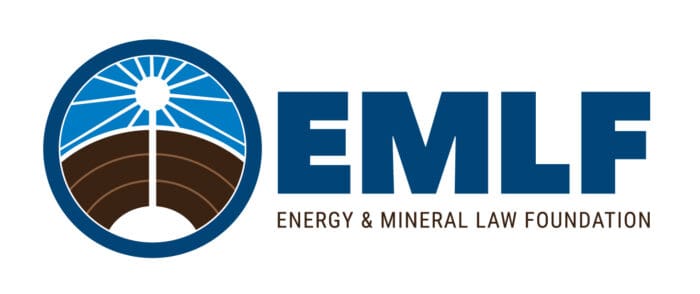
Current law firm: Partner with Hissam Forman Donovan Ritchie PLLC
Past associations: Law Clerk to Judge Robert C. Chambers, United States District Court for the Southern District of West Virginia; Law Clerk to Judge Robert B. King, United States Court of Appeals for the Fourth Circuit
Law School: Washington & Lee School of Law
Undergraduate: Georgetown University
Spouse: Bridget McGuire
Current home town: Winifrede, WV
Favorite bar or restaurant in current home city? There isn’t much in Winifrede — it’s an unincorporated community in eastern Kanawha County. But across the river, in Belle, is Bellissimo’s Pizza. It’s a small, family-run operation that treats you well, and everything they make has that homemade care and deliciousness that’s hard to match.
EMLF Involvement: Member; Presenter at 2023 Fall Institute; Volunteer for the planning committees of 2023 Fall Institute and 2024 Annual Institute; Recipient EMLF Law School Scholarship; and (most importantly) an attendant at EMLF events since before I could drive.
Do you have a favorite anecdote or war story regarding your time as a lawyer? Once during a week-long trial in federal district court, a witness who had never been deposed identified previously unknown and relevant facts. My trial team and I acted quickly to craft a strategy for the examination, for which we had no control device. Following that whirlwind, I examined the witness and elicited testimony then ended up being critical. It was as close to a movie-style trial moment as you can get in modern complex, commercial litigation.
Where did you grow up? Charleston, WV
What is your area of practice? I handle complex litigation and transactional matters, with a focus on the energy sector.
How did you get involved in that area of law? I came by it honestly and had a great mentor who showed me the ropes. As a young kid, my dad and I would talk about the important things: the Mountaineers, Jimi Hendrix, and the oil and gas industry. I distinctly remember accompanying him to an argument in front of the Supreme Court of Appeals of West Virginia on the issue of coalbed methane ownership and being his demonstrative assistant during a hearing on royalty interests before Judge Copenhaver. In short, long before I went to law school, I developed an appreciation for, and interest in, the intersection of the energy industry and the law.
How much of your time is spent representing clients in the coal, oil and gas, or other energyindustries? 70%
You have spoken at a couple of EMLF events and have been involved in EMLF committees. Has that involvement benefited you? My experience in EMLF has been exceptional. At every EMLF event, the presentations are high quality and genuinely interesting. The members of EMLF have been welcoming and willing to provide help, guidance, and opportunities for expanding my energy practice. And, on top of that, the folks at EMLF events and on the committee, calls are enjoyable to be around. Having such a group of fun, bright, and successful compatriots who share common interest and experiences in the energy space has been allowed me to deepen my interest in the energy space and become a better practitioner in the space.
You’re still a young lawyer but have been practicing for a few years. Looking back, what two or three things have been most helpful to you in developing as a lawyer and as an attorney at your firm? No question, the two most pivotal aspects of my development as a lawyer have been (1) clerking and (2) being open to responsibility early. Clerking provided me with insights into the difficulties of the adjudicative process, as well as what effective (and ineffective) advocacy looks like. I was especially lucky to have clerked for two accomplished trial lawyers and esteemed jurists that imparted years of collective wisdom on successfully practicing law. With the clerkship background, I was fortunate enough to be entrusted with substantial responsibility early in my career. Although panic-inducing at times, having the opportunity as a young lawyer to work directly with clients on how to achieve their goals, make larger strategic decisions, and being responsible for relative success (or lack thereof) on a matter offered me a proving ground to find my footing on practicing law.
Is there any advice you would give to new lawyers and law students who are about to become lawyers? Two pieces of advice. First, learn about the industry/business of your clients. Unlike law school, client’s legal matters are not devoid of real world pressures — market forces, operational limitations, resource limitations, and competition concerns. Those things matter, and the more you can understand those aspects of what your clients do, the more pointed and beneficial your legal counsel will be. Second, don’t present a problem without identifying and recommending a potential solution. Law school is great at teaching you how to spot legal problems, but in law school, the solution is less important. Not so in the practice of law. Identifying possible problems is important, but your clients have hired to you find and solve issues. Therefore, it is important to practice early on in your training to accompany ever research assignment or task you are assigned with a proposed resolution/path forward.
